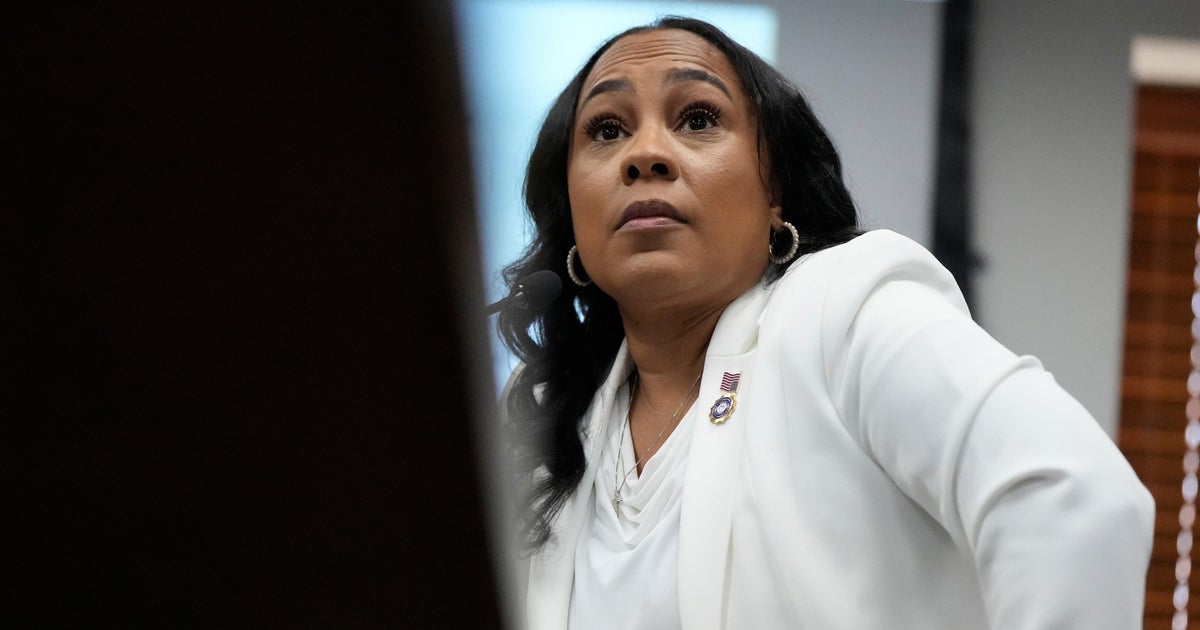What can Congress pass to help the "Dreamers"?
With a tweet this week, President Trump passed off the fate of a popular class of undocumented immigrants to Congress.
"Congress, get ready to do your job -- DACA!" Mr. Trump typed out on Twitter Tuesday morning. Soon after, his attorney general announced the end of the program that allowed nearly 800,000 immigrants brought to the U.S. illegally as children to stay here with two-year renewable permits.
The legal battles over the fate of Deferred Action on Childhood Arrivals (DACA) recipients have just begun, and now lawmakers have started considering what they can do in their limited time frame to prevent the deportation of people, many of whom have grown to consider the U.S. their home, rather than the native countries they often barely recall.
The president indicated that if Congress brings him something to act on, he's likely to view it favorably.
So, what are they considering?
The DREAM Act
Sixteen years ago, Sen. Dick Durbin filed the Development, Relief and Education for Alien Minors bill -- the original Dream Act. Versions of it have passed the House and Senate at various times, but not one that both could agree upon. By 2012, Obama had grown impatient and created a policy that would achieve the ends of the Dream Act by signing the DACA executive order instead.
Now, a new version of the bill has been reintroduced on a bipartisan basis by Durbin and Sen. Lindsey Graham, R-South Carolina in the Senate. Under their bill, applicants must meet the following requirements:
- Have lived in U.S. for four years or longer;
- Be under the age of 18 years;
- Graduate from high school or obtain a GED;
- Be employed for three years;
- Pass criminal background check and English proficiency test.
Graham also said that Republicans would also want to see border security included as part of a deal, which Durbin accepts.
The BRIDGE Act
Colorado Republican Rep. Mike Coffman is trying to force GOP House leadership to bring a temporary extension of DACA to the floor. It's called Bar Removal of Individuals Who Dream and Grow our Economy -- a.k.a. The Bridge Act. He can force a floor vote if he's able to gather 218 signatures on a discharge petition. Coffman would need Democrats to sign onto the effort to go this route.
The Recognizing America's Children Act
Republican Florida Rep. Carlos Curbelo, R-Florida, introduced this bill in the House, which would allow immigrants who came to the U.S. before 16 years of age and have been in the U.S. for five years to apply for legal status.
The RAISE Act
This bill would implement a merit-based points system for allowing immigrants into the U.S. Introduced by Sens. Tom Cotton, R-Arkansas, and David Perdue, R-Georgia, in the Senate, it's one bill that already has the explicit support of President Trump. It would:
- Cut number of green cards from 1 million by half, to about 500,000;
- Create points system based on proficiency in English, education, job skills, high-paying job offers and record of extraordinary achievement;
- Prioritize immiediate family -- spouses and minor children of U.S. citizens and legal permanent residents; would eliminate preference for extended and adult family members;
- Eliminate diversity visa lottery of 50,000 visas awarded annually;
- Cap annual refugee admissions at 50,000.
The Enlist Act
Rep. Jeff Denham, R-California, has introduced a bill that has broad bipartisan support -- it would allow Dreamers to obtain legal status with military service.
The American Hope Act
Rep. Luis Gutierrez, D-Illinois introduced this bill, which has the support of many House Democrats. Here are some of the key points in his measure:
- Entered the U.S. before 18 years of age;
- Convictions for some crimes are disqualifying;
- Can apply for conditional residency if eligible;
- After three years, eligible for permanent residence;
- After five years, eligible for citizenship.
Should all these options fail, Mr. Trump tweeted Tuesday that he'll "revisit" the issue.



